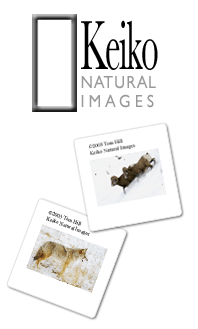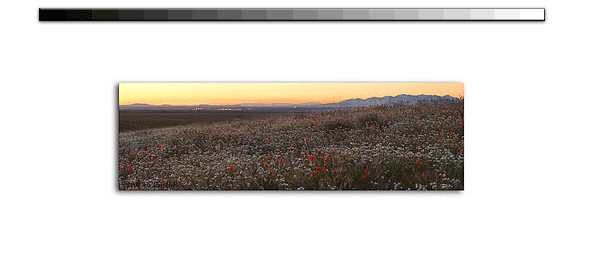|
We already noted reviewers have positively compared the image quality of the 1Ds to 6x7 format film. Along with the larger film/sensor, theres a cost. Beyond the whole initial outlay of extra money for the body, large sensors need more harddrive space, occupy greater bandwidth on your digital throughput, and may only let you take limited numbers of images on a single storage card. The whole image throughput/workflow can get bogged down with these larger files, just like it would if you shot 6x7 film on a regular basis. The extra pixels apply a resource cost thats not readily apparent until you start processing your pictures. I say, unless you need to match medium format film requirements, you dont have to go with a Canon 1Ds like full framed product. Its overkill.
There is one serious flaw to using smaller digital sensors like Nikons D1 series. Wide-angle lenses are not nearly as wide. The boon for long lens shooters is a bane for wide-angle shooters. You need a 14mm lens on the D1x to get the same FOV as a 21mm on the full-framed 1Ds. Yup, thats a problem with todays line-up. Nikons 14mm f/2.8 is significantly more expensive than their 21mm f/2.8. Its something like 500% more expensive. I agree, less wide wid-angle is a significant problem and is probably the major reason any 35mm shooter should consider the larger format 1Ds. However, while not fully compatible with their other non-digital cameras, Nikon looks like theyre tackling this problem by introducing lenses specifically designed for the D1 series formatless image area means cheaper, smaller, and lighter lenses. The soon to be released 12-24mm f/4 lens is an interesting departure from Nikons lens line-up because it isnt totally compatible with all their camerasa major selling point of Nikons F-mount. Okay, thats a problem for those that still shoot older film cameras. For those digital only shooters, this doesnt mean a thing. In fact, if you take this design philosophy to longer lenses, the smaller sensor could mean significantly smaller, lighter, and cheaper telephotos. Thats something to really look forward to. If wide-angle images are needed, Nikon is getting its act togetherin an interesting way to meets the needs of 35mm film shooters.
I make all of these discussions believing Nikons digital cameras produce files second to none. Im assuming the image quality you get from todays digital Nikons are as good or better than most 35mm film/slide imagery. From the flexibility and versatility point of view of, I made my decision to go digital almost two years ago and havent looked back. Digital is in my workflow because I have total control of everything from beginning to end; from capture to print. When you believe your prints are fine the way they are, more pixels will not produce better prints. More pixels may give you some flexibility with respect to cropping. Other then that, extra pixels are generally a waste. Ill add one more caveat in that Im limiting prints to 13x19 inches which even the D1h and its paltry 2.74 MP sensor can properly satisfy. Right now, I dont need the extra pixels so having them is a bit like gluttony.
I dont think Nikon is being left in the dust, far from it. Sure theyre slow to introduce new appealing features like Canon has. But, if you get past the gloss, Canon hasnt revolutionized the tools for the 35mm film to digital converts. Nikons core tools get the job done now, quite well in fact. Im very hopeful of the direction Nikon is taking. Im looking forward to more lenses with VR technology to meet those 5% times when stabilization technology is needed. Im looking forward to how Nikon will leverage its smaller sensors into smaller, cheaper, and just as capable lenses.
If theres anything we can fault Nikon about, its their terrible marketing approach that keeps the Nikon faithful on edge to how the future will realize itself. If Nikon was more forward with its path, their core users would have more tools to overcome the incredible draw of glossy new features Canon seems to create on a regular basis. Nikon already meets the needs of todays 35mm style digital photographers while Canons introductions dont represent revolutionary improvements. The path Nikon is on seems to lead to lower costs and more capability while still meeting the spirit of 35mm film shooters of years past.
Keep the faith&
Cheers
Tom
|
|
|




